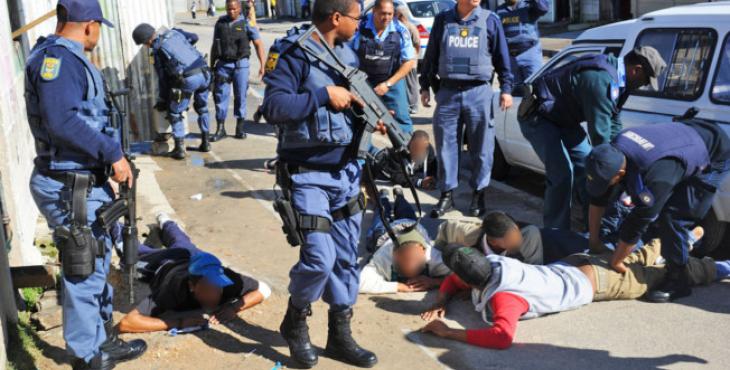There have been numerous reports of Manenberg residence being unsatisfied with the service they are receiving from SAPS officials in the area, allegedly due to the language barrier. Most of the people who live in the Manenberg community are Afrikaans speaking and are therefore unable to effectively communicate with Xhosa speaking police officers.
Chairman of Manenberg Community Police Forum (CPF), Kader Jacobs, explains that Manenberg is a 98 per cent, so-called coloured Afrikaans-speaking community; the Manenberg Police Station, however, employs 90 per cent Xhosa-speaking police officers, who speak English as a second language.
“This is not to say that [the Zulu speaking] cops are bad cops, or are incapable of carrying out their duties,” Jacobs affirmed.
The Afrikaans spoken within the Manenberg area is not the pure form of the language. The language barrier has, therefore, proved problematic for the police to accurately take statements from plainants.
“Apartheid has played a major role in shaping the attitude of the community toward black people,” Jacobs notes.
Jacobs, furthermore, confirmed that the stoning of police officers is not unique to the area of Manenberg, but has in fact occurred in the area of Hanover Park.
“When people see black policeman there is already [innate] racism against them.”
Jacobs notes that in light of the presence of “black” police officers, with the arrest of criminals, the community seemingly protects the criminals.
The reason for this prejudice, Jacobs asserts, is due to the lack of upgrades by government within the community.
“The criminals see opportunity to do some of those things, and buy the respect of the particular street and neighbourhood that they live in. A gangster would therefore give food, or pay the electricity or rent [of community members],” Jacobs explained.
By imprisoning the gangster, the livelihood of the community members are threatened or removed. This consequently “causes grief between the community and the police, because certain community members want to protect these individuals.”
POPCRU provincial secretary, Mncedisi Mbolekwa, has asserted that the department did not have any knowledge regarding the situation between the community and police department until now.
“There have been reports on damaged vehicles and stoning of police officers. It is therefore difficult for me to answer why POPCRU was not aware of the situation,” Jacob asserts.
POPCRU is the Police and Civil Rights Union. The union has recently formally acknowledged the strained relationship between the Manenberg community and the police, and have subsequently proposed solutions.
Jacobs explains that “the problem won’t be resolved in the near future.”
Jacobs further urged national governments to review local demographics when allocating police officers.
National government currently deploys police officers based on national demographics.
Due to the Western Cape demographics, Jacob’s explained, the area of Manenberg will not be allocated police officers who are “white” or “coloured”.
Jacob’s, furthermore, encourages government to employ individuals from the Manenberg area who are able to speak Xhosa as interpreters, as a means to bridge the language barrier.
Currently, CPF, when on the scene of crimes, act as interpreters, so that the correct information is relayed and accurately understood.
The redeployment of police officers will not take place, Jacobs asserts, since “that is not part of national policy.”
Jacobs appeals to the community of Manenberg to be tolerant of the situation, and bridge the divide between the community and the police.
VOC (Thakira Desai)






 WhatsApp us
WhatsApp us 

